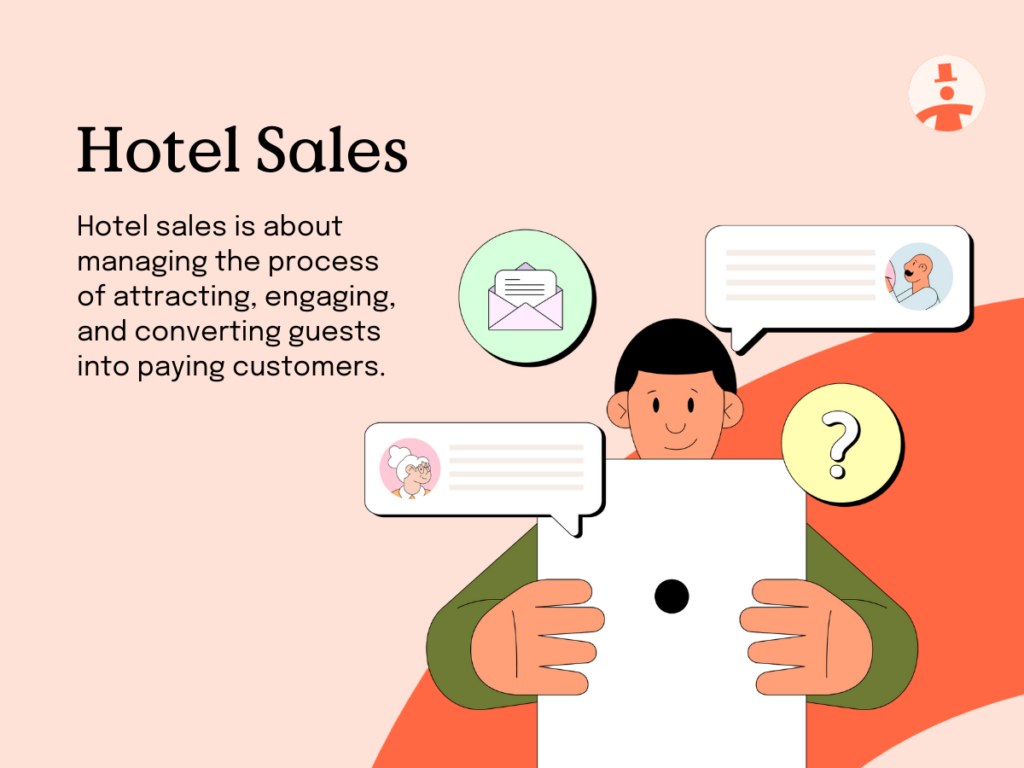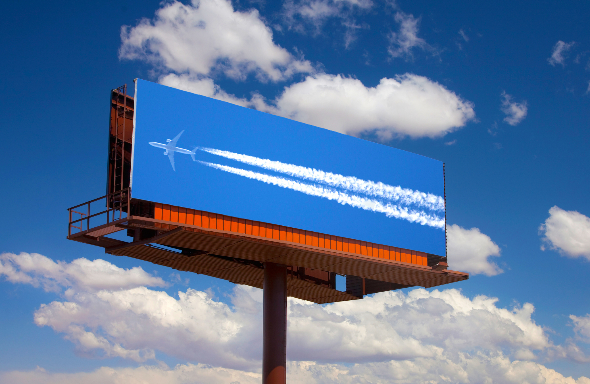What is hotel sales?
Hotel sales is about managing the process of attracting, engaging, and converting guests into paying customers. It includes various strategies and tactics around marketing, winning reservations, providing incredible guest experiences, and encouraging repeat business. Basically, it’s an all-in-one term that describes getting more cash flowing into your account.
A complete hotel room sales machine
Little Hotelier has been designed from the ground up to increase your hotel sales. With distribution, direct bookings, and insights features you have all the tools you need to sell more rooms than ever.
Learn moreWhy small properties need to improve their hotel room sales techniques
With the rise of online booking platforms and the growing trend of independent travel, competition among small hotels is fierce. It’s crucial to put yourself out there and attract more bookings, not just to keep your business afloat but to allow it to thrive.
What’s the best way to spread your property’s unique experiences to the world? Improved hotel sales strategies that secure more bookings.
Challenges small hoteliers face when trying to improve hotel sales
Of course, it’s easier said than done. Sometimes you can be held back by:
- Limited marketing budget
- Low brand recognition
- Limited staff
- Seasonal fluctuations
- Inefficient booking and reservation systems
- Limited guest loyalty and repeat business
It’s a lot to deal with. However, by focusing on cost-effective, proven hotel sales strategies, you can overcome these challenges, beat the competition, grow your revenue and ultimately grow your business and achieve your goals.
How to sell hotel rooms
Selling your hotel rooms more effectively is about understanding your hotel, your customers and your market, and finding the opportunities hidden within.
1. Analysing your current performance
Basically if you’re going to do something right, you first need to know what is going wrong. This means thinking about your property and identifying what the biggest roadblocks are that are stopping you making more sales. It could be things like:
- Your destination is saturated and guests have an abundance of choice
- Your competitors have an edge in what they offer or in the strategies they are implementing
- You lack visibility; not enough guests are finding out about your property
- You aren’t taking direct bookings online
- Your website is not optimised
- You aren’t targeting your ideal customers effectively
There could be plenty more areas where you see weakness but these examples were just to get you thinking. Once you have identified a few of the issues, you can immediately start making improvements. For example, if you notice your website is getting plenty of visitors but very few guests are booking, you might need to overhaul your website design or ensure you have a smooth booking process in place. Your conversion rate is always a good indicator of what you need to change.
2. Identifying your property’s strengths
You also need to know what’s to your property’s advantage so you can lean into it when you market and sell your property.
Your main strengths might include:
- A unique location (even within your destination)
- Your property is famous or has historical significance
- You can offer amenities that your competitors can’t
- Your customer service goes above and beyond
- You are the best option in town; you have high positive reviews or you can’t be beaten on price
Whatever they may be, your strengths are something you shouldn’t take for granted. Instead, you need to make sure guests know all about them when they are considering your small hotel during their travel research.
3. Have a direct booking strategy
Direct bookings are the best way to boost your profit and add a healthy number of reservations on top of the bookings you receive from third-party channels like Booking.com or Expedia.
You can of course take direct bookings via phone or email, but for your strategy to be effective you need to be able to take direct bookings from your guests online.
This means using an online booking engine, both on your website and via Facebook, to make it easy for guests to choose and confirm a reservation.
With an online booking engine, you can allow guests to pick a room, add their extras, confirm, and pay within a few clicks of their mouse or taps of their finger.
This is the nuts and bolts of your direct booking strategy. However, you still need to find ways to attract people to your website or Facebook page so always make sure you’re:
- Posting regular content on your blog and Facebook page
- Engaging your audience with competitions, polls, or giveaways
- Researching basic search engine optimisation techniques
- Directing visitors from your online travel agent profiles to your website
- Keeping your business details accurate and up-to-date on your Google Business Profile
4. Have an optimised website
Your website is tied directly to your direct bookings and can make or break your room sales.
Think of your website like you would a physical store:
- Customers want and need to be impressed immediately
- They need to like what they see
- They need to find it easy to navigate
- They need to see that your offers are relevant to them
- They need incentives to convert into buyers
- The purchase and payment process needs to smooth and fast
Getting all of this right isn’t easy but you need to make the effort. Hiring a web designer is certainly one option though this could be expensive and time consuming, especially if multiple updates and amendments are required.
Your best option is to look into hotel website builders. This software is:
- Specifically designed to suit small properties
- Quick to set up
- Automatically optimised
- Easy to update and customise by yourself
- Affordable
Using a website builder also makes it much easier to integrate your online booking engine to create a seamless direct booking process for you and your guests.
5. Manage third-party channels effectively
Generally the more OTAs you can connect to, the more bookings you’ll get. To ensure you’re reaching a diverse range of guests around the world you should sell your rooms through at least five channels.
However, manually managing more than a few channels can be time consuming, slow, and error-prone.
If you list all your rooms on all channels and aren’t quick enough to update your inventory after a booking you risk overbooking your property. If you split your inventory across channels, you are limiting your selling potential.
The best solution is to use a channel manager, which allows you to list all your rooms on as many channels as you want at the same time. When a booking is made it automatically updates your inventory in real-time, ensuring your inventory is always accurate and up-to-date.
It also integrates with your booking engine and property management system to create a seamless way to run your hotel.

How to sell rooms in bulk as a small hotel
While bulk bookings will usually demand a discount, the relative simplicity of organising and playing host to a group of guests, compared to a number of individual bookings, tend to make these bulk discounts more than worthwhile.
Looking to sell rooms in bulk? The following tips and tricks can help you to understand how to sell hotel rooms to corporates, tour groups, wedding parties and more.
1. Understand the market
You should begin by identifying the type of bulk bookings you’re looking to target. Are you hoping to attract tour groups? Corporate travellers? School excursions? Wedding parties? Bulk bookings can come from a surprising range of very different sources, so it’s critical that you know who you’re aiming to attract.
Target guests identified, look at how competitors are attracting these guests. Take inspiration from the things they do well and look to exploit what they don’t do so well in terms of marketing, pricing, guest experience and more.
2. Tailor your offering
Your bulk booking offering should be tailored to the specific type of group you’re looking to attract, such as fully catered weekend deals for weddings, business centre access included for corporates, and group activities for organisational retreats. Understand what your target groups want, and offer it.
3. Set appropriate rates
The key to securing bulk bookings is not to be the cheapest option, but the best value. If you’ve tailored your offering well, you can secure bulk bookings at a higher rate than your competitors, although you need to remember that every group will be looking for some form of discount on your normal room rate.
4. Promote group facilities
Ensure you have the facilities and amenities that your target group is looking for. If you are looking to attract group bookings for weddings and special events, you need somewhere on-site, ideally with an outdoor element, where everyone can dance the night away. Corporate travellers will be looking for a place to conduct their business, while organisations will want a room or venue where they can meet and present.
How to sell more hotel rooms: Top ways to increase hotel sales online
Modern accommodation providers need to know how to sell hotel rooms online, as that’s where the overwhelming majority of bookings originate from. Here’s how an independent hotel can increase their hotel sales for bookings large and small.
1. Create a hotel sales action plan
Develop a clear, step-by-step plan that outlines your sales goals, target audience, and the strategies you’ll use to achieve them. This will help you and your team stay focused and track your progress. The first step to achieving your goals is to set them, so take the time to strategise and set a roadmap to success.
Take a look at your current performance and set ambitious, but reasonable, goals for your business. Do this for both the long term and the short term. Little Hotelier reports are a good place to start to ensure that you have a data-based foundation to your strategy.
2. Segment your target market
What do B&Bs, rentable treehouses, island getaways and massive hotel chains all have in common? They appeal to different audiences, and that’s why they’re successful.
Identify your ideal guest personas and tailor your marketing efforts to appeal to their specific needs, preferences, and travel motivations. This is a great way to get more people in the door as well as upsell to returning guests.
Look at your booking data and guest details to find patterns. Group your guests based on things like travel reason, age, and spending habits. Compare those against the unique selling points that differentiate your hotel to competitors.
Then, make targeted ads, promotions and other marketing material that appeals to those specific groups. Want an example? Couples looking for a romantic getaway will be attracted by very different marketing than a family seeking kid-friendly getaways.
3. Cross-promotion
This is all about hitching your wagon to large events that may be happening throughout the year at your destination. Create deals and packages that coincide with the events – these may be business conferences, concerts, festivals or sporting events.
If you’re in an area that attracts tourists then you aren’t the only business looking to capitalise.
Work with other businesses to create packages and bundles that will add value to a guest’s stay and convince them to choose you. For example, you might work with specialty shops where travellers hire gear, theme parks, restaurants, tour guides, theatres, and more.
4. Monitor and respond to reviews
So you got a great (or a bad) review. What now? It’s crucial to know how to respond to a hotel review! Your potential guests are looking for a hotel that can address concerns and showcase commitment to excellent customer service.
A five star review is great, a five star review that gets a personal response from the owner is even better. A one star review is terrible, but a one star review with a response from the owner that directly fixes the problem? That could be the difference between a click elsewhere and a booking.
Review management software like TripAdvisor Management Center is designed to help you manage reviews. This helps you keep track of all the reviews you’re getting and which ones you need to respond to ASAP.
Prompt and professional responses are key, and remember: you aren’t just replying to the person who left the review. You’re responding to anyone else who might be reading it in the future too.
5. Reward your guests
A guest who’s stayed with you before is much easier to win over than a new guest, particularly if they have an incentive to stay again or recommend you.
Guest rewards might include points or discounts for staying again, purchasing upgrades, or referring friends or family.
6. Establish a direct channel with a booking engine
OTAs charge commissions which can cut directly into the profitability of your enterprise.
You can cut out the middle man by establishing a strong direct-channel booking engine, where guests can reserve rooms with you directly. This requires a strong presence, excellent marketing and the right software to back you up, so it takes time, but it’s well worth the investment.
While OTAs are useful, you don’t want to rely on them all the time. Try offering exclusive deals or discounts for guests who book directly with you (e.g. free breakfast, late check-out, room upgrades).
Then blast your awesome offers out via your online advertising channels like social media, newsletter (if you have one) and paid ads on Facebook, Twitter, and so on.
7. Work with local businesses
A big part of the appeal of your hotel is its proximity to great food to eat, stuff to do, and places to be. So why not take advantage of that and partner with nearby attractions, restaurants and event organisers to create unique packages and offer exclusive discounts to attract more guests to your hotel?
You get more hotel sales, your partner gets more customers, and your guests get a great deal. It’s a win-win!
Partnering with local attractions is all about the quid pro quo. Approach other business owners with a deal that benefits you both already in mind; think of a bundled package that gets guests at your hotel a reasonable percentage off the price of a meal at a local, unique restaurant.
Guided tours, tastings at breweries, tickets to events – all of these are great opportunities to not only boost your sales and get to know your local business community better, but also provide an awesome tailored local experience to your guests.
Need more advice? Check out our guide on how to effectively sell hotel rooms at your small property.
8. Adopt a dynamic pricing strategy
Pricing matters to guests more than you might think. Even a small difference in room rates can be the difference between a schedule full to bursting and completely dead air.
The key here is to find a way to monitor demand, seasonality, and local events, and figure out how to adjust your room rates accordingly. Slow season? Drop rates. Big event coming up? Slide them up. With the right settings, you can increase your revenue by optimising hotel pricing strategies.
Your competitors will be doing this exact same thing, so it can be tough to stay abreast of what’s a “competitive” rate. Software like Little Hotelier can make it easier with dedicated competitor pricing insights, so you can automatically adjust your room pricing to keep things lively without having to scan through miles of competitor listings.
9. Upselling and cross-selling
Guests love to have flexibility and choice within their booking. Upselling gives them the option of enhancing their stay for an extra fee. This could be a room upgrade.
Cross-selling allows them to buy extra items that compliment their booking, such as a massage service. Allowing guests the freedom to choose how they want to best enjoy their stay will help you win their booking.
10. Optimise for mobile devices
Did you know that the vast majority of searches for hotels begin from a mobile phone? It’s true! If your website isn’t mobile friendly, you could be missing out on those valuable direct bookings we mentioned earlier.
Your site should be lean, fast, and easy to use, whether someone is typing on a keyboard or tapping with a finger.
Head to your website on your mobile device. Does the font scale properly? Do the pictures look right? Is the layout still easy to understand? If someone wants to book, is it obvious where they need to go? And when you loaded up your site, did it appear in a blink, or was it sluggish?
Use Google’s Mobile-Friendly Test tool to check your site’s performance – or just use Little Hotelier website builder, which is designed to be mobile-friendly from the get-go.
11. Use high-quality photography
They say that the first bite is with the eye when it comes to food, and something similar can be said when it comes to building hotel sales.
If you want to look appealing, you have to look appealing, and that means high-quality photography that highlights your hotels’ unique features and creates a strong first impression.
While smartphone cameras have come a long way, there’s still a lot of value in hiring a professional photographer to capture your hotel’s best features.
Regardless of who takes the photo, make sure that they get used! Share them on your website, social media and OTA listings, and capture a wide range of different room types and amenities while you’re at it. Wide appeal counts for a lot in building your hotel sales.
12. Offer themed promotions and packages
Got a big event coming up like a sports match or concert? This is prime material for building up your hotel sales with themed promotions and packages.
Fans will travel far for their favourite bands & teams, so make their experience an even better one with deals and offers that appeal specifically to their tastes.
Get in the head of a fan. What do they need to enjoy the event they’ve travelled for even more? How can you give it to them? Hook up sports fans with free transport to the stadium, provide some merch from the band for music lovers.
It doesn’t have to be a local event either. Valentine’s Day and Mother’s Day are great opportunities to provide themed deals and keep your bookings every year.
13. Retargeting
Retargeting is a way to win back people who visited your site but didn’t book with you. You can use Facebook to serve them ads about a page or room they looked at while on your site. You can use third party software like AdRoll to start retargeting on Facebook.
Retargeting is useful because much of the time, travellers won’t book the first time they visit a website so reminding them of your property increases the likelihood of them coming back to you when they are ready to make a decision.
14. Expand your online reach with a channel manager
Channel managers allow you to list your property on multiple online travel agencies, like Expedia, so you can increase your visibility to potential guests.
Successful hotels make sure their presence is spread all over the web, and a channel manager makes that a lot easier (and avoids problems like double bookings).
Not all channel managers are made equal. The key to getting the most out of a channel manager is ensuring that it integrates well with the rest of your hotel software and processes.Little Hotelier, for example, includes a channel manager that’s built into the hotel management software.
No need for integrations, it connects you with 450+ OTAs right out of the box. Post your listing in one place and we sort the rest.
By Dean Elphick
Dean is the Senior Content Marketing Specialist of Little Hotelier, the all-in-one software solution purpose-built to make the lives of small accommodation providers easier. Dean has made writing and creating content his passion for the entirety of his professional life, which includes more than six years at Little Hotelier. Through content, Dean aims to provide education, inspiration, assistance, and, ultimately, value for small accommodation businesses looking to improve the way they run their operations (and live their life).
Table of contents
“With the mobile app, you can run your business from wherever. It's incredibly user-friendly and straightforward. Little Hotelier also offers 24/7 customer service.”
Owner, Sundowner Twin Towns Motel






